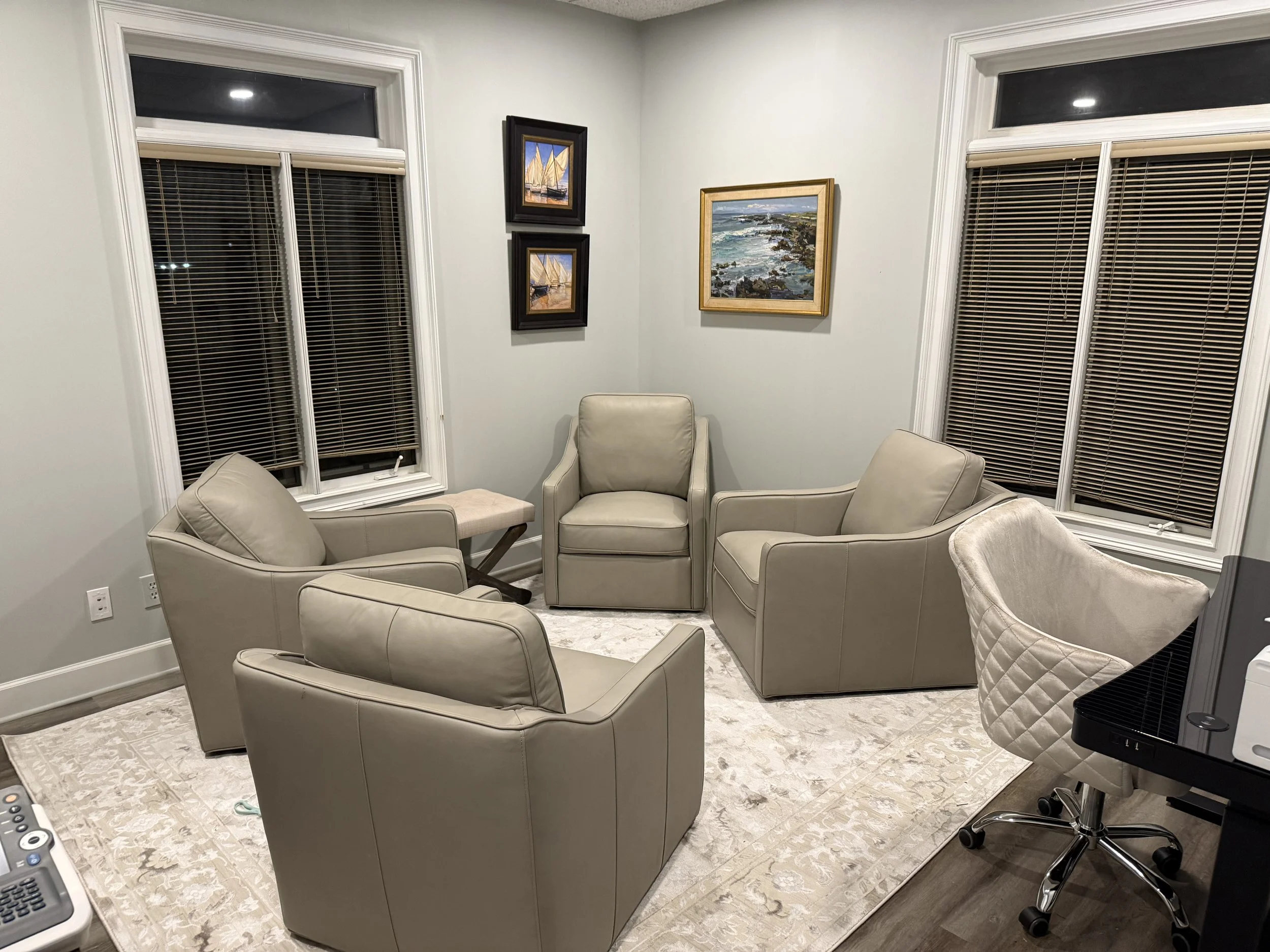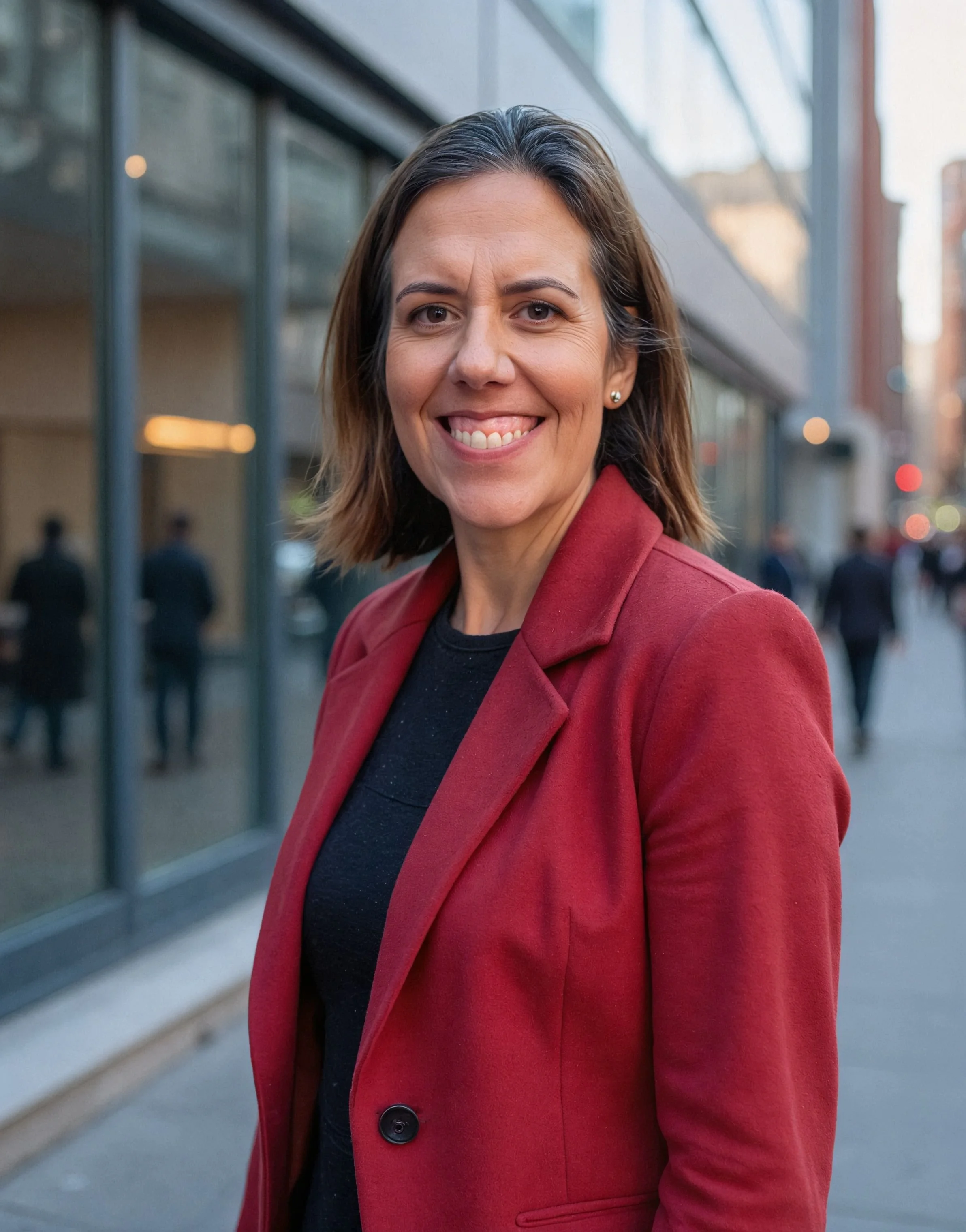Dr. Jennifer Setlik
Your Eating Disorder Doctor:
Education
Undergraduate: Yale University
Medical School: University of Illinois
Residency
Washington University, St louis/St Louis Children’s Hospital
Fellowship
Cincinnati Children’s Hospital




Dr. Jennifer Setlik in her words
What is your medical specialty and current role at the clinic?
I’m a board-certified pediatric emergency medicine physician specializing in the medical care of children, teens, and young adults with eating disorders. At my clinic, I serve as the founding physician and medical director, where I oversee medical stabilization, provide direct patient care, and collaborate closely with therapists, dietitians, and families. My role is to ensure that each patient receives safe, developmentally appropriate, and trauma-informed medical support as they navigate recovery. I also guide our clinic’s vision as we expand to offer innovative, inclusive services for all bodies and identities.
What is your approach to eating disorder treatment?
My approach to eating disorder care is medical, relational, and deeply individualized. I focus on restoring physical health while building safety, trust, and connection with each patient and their family. I integrate trauma-informed principles, weight-inclusive care, and developmentally appropriate strategies to support healing—not just from the eating disorder, but from the shame and disconnection that often come with it. I believe in partnering closely with therapists, dietitians, schools, and caregivers to create a circle of support. Most importantly, I meet patients where they are, helping them move toward recovery with compassion, not control
What drew you to specialize in eating disorders—especially pediatric and adolescent care?
I knew I was going to work with children since I was a child, and I have never doubted that decision. As for moving into eating disorders, it is one part my own experience with disordered eating and my experience of repeatedly caring for eating disorder patients in crisis in the emergency department. I was drawn to eating disorder care because it sits at the intersection of medicine, psychology, and human connection. Early in my pediatric training, I saw how often these illnesses were misunderstood or missed entirely—and how deeply they impacted not just the patient, but the whole family. I chose to specialize in this work because I believe every child and teen deserves to feel safe in their body, supported in their healing, and truly seen by their care team. Working with young people during such a vulnerable time is a privilege, and I’m passionate about helping them rediscover trust, resilience, and hope.
Where did you complete your medical training, residency, and any fellowship?
I majored in molecular biochemistry and biophysics at Yale University. My medical school training was in my hometown at the University of Illinois at Chicago. I completed my residency in pediatrics at Washington University/St. Louis Children’s Hospital and my fellowship at Cincinnati Children’s Hospital.
How do you build trust with young patients and their families?
Building trust with my patients—especially children, teens, and young adults navigating eating disorders—is at the heart of my work. I create a space where they feel seen, heard, and never judged. I take the time to listen closely, explain medical care in clear and compassionate ways, and meet each individual where they are in their recovery journey. My approach is collaborative and trauma-informed, always honoring autonomy, safety, and the unique wisdom each patient brings. Whether I’m working with a young child, an anxious parent, or a teen learning to rebuild a relationship with their body, my goal is to foster connection before correction—because healing happens through trust.
What do you believe is essential for long-term recovery?
For long-term recovery to take root, children and teens need more than just symptom management—they need to feel safe, supported, and deeply understood. I believe healing happens when families are empowered to take an active role, and when young people are surrounded by consistent, compassionate care that addresses not just the body, but the heart and mind. Recovery is not linear, and it takes time, trust, and a team that honors each child’s unique journey. At the foundation of lasting recovery is the message every young person needs to hear: You are not broken, and you are never alone.
“Connection is why we’re here. It’s what gives purpose and meaning to our lives.” – Brené Brown
This reminds me that healing—especially from something as isolating as an eating disorder—happens through relationship, trust, and being seen. Whether I’m working with a child, a teen, or a parent, I come back to the belief that connection is the foundation of recovery, and compassion is one of the most powerful tools we have.
How do you integrate medical, psychological, and nutritional care?
Eating disorders impact every part of a young person’s well-being—body, mind, and spirit. That’s why I believe in a fully integrated approach to care. I work closely with therapists, dietitians, and families to create a unified plan that supports medical stability, emotional healing, and nutritional rehabilitation. We communicate often, share updates, and make decisions together to ensure that no part of the child’s care happens in isolation. When the whole team is aligned, young people feel safer, families feel more supported, and recovery becomes not only possible—but sustainable.
How do you support diverse identities, body sizes, and neurodivergent patients?
Every child and teen deserves care that honors who they are—not just what they’re struggling with. In my practice, I center affirming, weight-inclusive, and neurodiversity-informed care. I recognize that eating disorders don’t look the same in every body or community, and that lived experience—including race, gender, ability, and size—deeply shapes a person’s journey. I strive to create a space where patients feel seen, respected, and never asked to change who they are to receive help. Whether a young person is navigating a marginalized identity, sensory sensitivities, or a complex relationship with food and body, my goal is always the same: to meet them with curiosity, compassion, and care that truly fits
What are your short- and long-term hopes for the clinic and your patients?
In the short term, my hope is that every patient who walks through our doors feels safe, supported, and understood—and that families feel less alone as they navigate recovery. I want our clinic to be a trusted space where healing begins early, care is collaborative, and each child is met with both medical expertise and deep compassion.
Long term, I envision growing a center of excellence for pediatric eating disorder care—one that integrates virtual access, trauma-informed innovation like ketamine-assisted therapy, and a full team of specialized providers. I hope to change the way our community understands and responds to eating disorders by offering care that is inclusive, accessible, and built on relationships. Most of all, I want our patients to know: full recovery is possible, and they are never alone on that path.
What inspires you most about working with children and teens in recovery
What inspires me most is witnessing the strength and resilience of young people—often long before they can see it in themselves. Children and teens have an incredible capacity to heal, to grow, and to reconnect with who they are beyond their eating disorder. I’m constantly moved by their honesty, courage, and creativity, even in the face of deep struggle. Being part of their journey—helping them find safety in their bodies, their relationships, and their futures—is one of the greatest privileges of my work.
What would you want families to know when they first meet you?
When you first meet me, I want you to know that you are not alone—and that there is hope. I understand how overwhelming and frightening it can be to face an eating disorder, especially in a child or teen you love deeply. My role is to walk alongside your family with compassion, clarity, and care. I take the time to listen without judgment, explain what’s happening medically, and partner with you in building a plan for healing. You don’t have to have all the answers—that’s what I’m here for. Together, we will create a path forward that centers safety, trust, and the well-being of your child.
Are there any personal interests, hobbies, or fun facts that make you more relatable?
Outside of my work in medicine, I find joy and grounding in the creative and natural parts of life. I love painting and creating art as a way to slow down and express myself. You can often find me hiking local trails, spending time with horses, or volunteering in community spaces that support youth and families. These passions help me stay present, balanced, and connected—and they remind me daily of the importance of healing not just the body, but the spirit too.
A lion.
The lion represents many of the qualities we hope to foster in every child, teen, and family who walks through our doors: strength, courage, dignity, and presence.
Eating disorders often convince people to shrink—to be small, quiet, invisible. Recovery asks them to do the opposite: to stand tall, speak truth, feel deeply, and take up space in their own lives. Like a lion, recovery is not passive. It’s powerful, vulnerable, and fiercely alive.
The lion also symbolizes protectiveness and community. In nature, lions don’t thrive alone—they live in prides, relying on each other for survival and connection. In our clinic, we believe healing happens in relationship—with providers, with family, and most importantly, with self.
Choosing a lion as our emblem is our way of saying:
You are allowed to be bold. You are allowed to be seen. You are allowed to be powerful in your healing.



